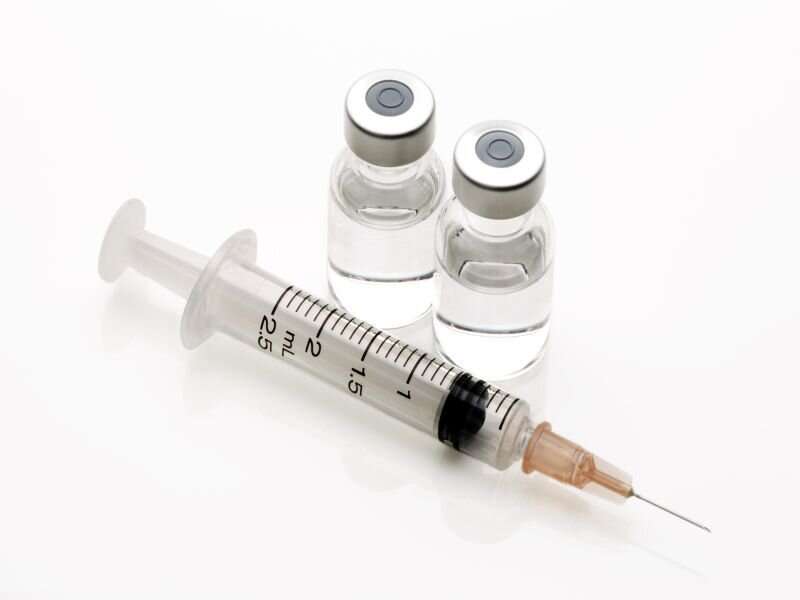You've had COVID: maybe one dose of vaccine is enough, studies suggest

Could one shot of a coronavirus vaccine be sufficient if you suffered a case of COVID-19 earlier in the pandemic?
Yes, new research claims.
A pair of new, small studies found that patients previously infected with COVID who were given their first vaccine dose showed the sort of robust immune response that people generally tend to have following their second "booster" dose.
"People that have had COVID before, they make antibodies very quickly to much higher levels than those that had no experience with the virus," said Dr. Viviana Simon, senior researcher on one of the studies and a professor of microbiology and infectious diseases at the Icahn School of Medicine at Mount Sinai in New York City.
"That led us to the conclusion that a second shot of the vaccine should not be necessary in individuals that have been previously infected," Simon said. "That would save vaccine doses and also would limit the discomfort experienced by people upon vaccination."
However, these findings are likely a moot point given the practical considerations of the pandemic, other experts said.
The new papers, published recently on the preprint server medRxiv, need to be peer-reviewed and verified by follow-up research before a single-shot strategy could be implemented in previously infected people, and that will take precious time.
Future studies examining whether a single vaccine dose would be sufficient in any group of people "would take several months to get a meaningful answer," said Dr. Anthony Fauci, director of the U.S. National Institute of Allergy and Infectious Diseases.
"At that time, the amount of vaccine that would be available would almost be making that question somewhat of a moot point," Fauci said during a Monday briefing of the White House COVID-19 response team. The current vaccine supply shortages are expected to clear up as Pfizer and Moderna ramp up production and other vaccine candidates receive approval from the U.S. Food and Drug Administration.
Measuring the antibody response
Mount Sinai researchers have been following health care workers who've fallen ill with COVID, to see how long a natural antibody response to the novel coronavirus will last and to track whether any patients suffer a reinfection, Simon said.
When the COVID-19 vaccines were rolled out in December, the researchers extended their study to see how previously infected people would respond to the vaccine.
They found that the antibody response in 41 people with preexisting immunity was equal to or exceeded 68 others who've never had COVID, results show.
This strong response occurred even in people who'd had no symptoms from their COVID infection or had lower antibody levels before receiving the first dose, Simon said.
"This makes sense if we think of the natural infection as being the prime, like the first dose, and then the vaccine is like the boost, or the second shot, for someone who hasn't seen the natural infection," Simon said.
Another study out of the University of Maryland recently came to a similar conclusion—33 previously infected people responded more strongly to their first shot than 26 others who were never infected.
"I do think that there is emerging evidence that someone with prior COVID infection may be able to achieve sufficient immunity with just a single dose of a two-dose vaccine regimen," said Dr. Amesh Adalja, a senior scholar with the Johns Hopkins Center for Health Security in Baltimore. "Prior immunity through natural infection can be boosted by a vaccination to give more durable and robust immunity."
But Adalja noted that these small studies need to be verified by larger trials, as did Dr. Andrew Badley, head of the Mayo Clinic's COVID task force.
"The concept of preserving vaccine supply by giving those who have recovered from SARS-CoV2 infection just a single dose of vaccine rather than the usual two-dose regime is a very reasonable idea that may in fact be effective," said Badley, an infectious disease expert. "Today, however, we do not have sufficient data to recommend that approach, but I would personally be in favor of testing the approach under the rubric of a controlled clinical trial."
B memory cells vital to immunity
Dr. Thad Stappenbeck, chair of inflammation and immunity at the Cleveland Clinic's Lerner Research Institute, is hesitant to embrace the one-shot strategy because higher antibody levels don't always protect people against severe disease.
"To me, that's really the critical data here, right? It's hospitalizations and deaths. That's what we're trying to prevent," Stappenbeck said.
Clinical trials have shown that two doses are incredibly effective in creating antibodies that can fight off not only the novel coronavirus but also the variants that have cropped up in recent weeks, Stappenbeck noted.
Most important in that response are the immune system's B memory cells, which show that the body has learned the lessons taught by the vaccine, Stappenbeck said. More study would need to be done to show that a single shot in previously infected people would provide a sufficient boost to their immune memory.
"While the level of antibody is important, these B memory cells are really critical," Stappenbeck said. "Having a finely tuned immune response is the key to longer-term immunity."
More information: The U.S. Centers for Disease Control and Prevention has more about COVID-19 vaccines.
Copyright © 2020 HealthDay. All rights reserved.




















